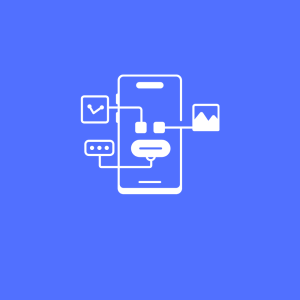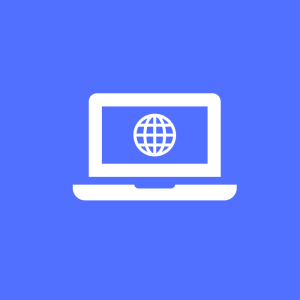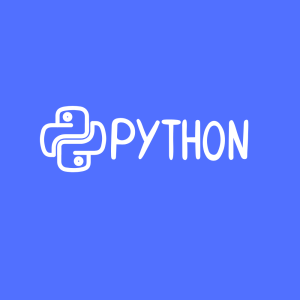Tech Leaders Program Age 12+
Learning with hands on projects
What Will My Child Learn ?
App Designing
Age Group:12+ years
Session Duration: 1 hour per session
Schedule: Weekly
Term 1 – App Design Basics (11 Sessions)
Goal: Understand the App Inventor interface, design elements, and simple logic.
Introduction to App Inventor & Emulator Setup
Interface Elements: Buttons, Labels, Textboxes
Designing a Basic Calculator
Variables and Simple Math Operations
Event-Driven Programming: Button Clicks
Conditional Statements (if-else)
Creating a Quiz App
Using Lists (e.g. Flashcards App)
Creating a Fun Counter App
Simple Game: Tap to Score
Test & Project Review
✅ Term 2 – Interactive & Data-based Apps (9 Sessions)
Goal: Work with sensors, media, and local data storage.
Using Media: Sound, Images, and Video
Designing a Video Player App
Using Clock and Timer in Apps
Working with TinyDB (Local Storage)
Login Page Simulation with Stored Data
Introduction to Sensors (Accelerometer, Orientation)
Speech Recognition & Text-to-Speech App
AI Image Generator App
Test & Practice Project
✅ Term 3 – Advanced Projects & Publishing (10 Sessions)
Goal: Finalize app development skills and create publish-ready apps.
Location Sensor & Maps App
Working with Web API (e.g. Weather App)
Building a Currency Converter using Live API
Finalizing the UI – Themes, Navigation
Advanced Game: Pop the Balloon or Memory Game
Using Firebase (Intro only)
App Debugging Techniques
Mini Project: Design Your Own App
Final Assessment Project
App Packaging, Testing on Phone, and Publishing Guidance
Learning Outcomes:
- Understand the basics of mobile app development using block-based coding
- Build user-friendly app interfaces using the MIT App Inventor platform
- Implement interactivity using buttons, images, text, and multimedia
- Use variables, conditions, and lists to manage app behavior
- Integrate features like speech recognition, sensors, and screen navigation
- Test apps on real devices and debug logic errors
- Develop creative problem-solving through project-based learning
- Complete original app projects and showcase in a portfolio
Website Designing
Age Group: 12+ years
Session Duration: 1 hour per session
Schedule: Weekly
Term 1 – Web Development Basics (11 Sessions)
Goal: Learn HTML and CSS to build static web pages.
Introduction to Web Design & Structure
HTML Tags: Headings, Paragraphs, Links, Images
Lists and Tables in HTML
HTML Forms – Input, Checkbox, Radio
Introduction to CSS: Inline, Internal, External
Styling Text, Colors, Backgrounds
Layout with Divs, Span, and Classes
Using Google Fonts & Icons
Creating a Simple Portfolio Webpage
Responsive Design Basics with Media Queries
Test & Mini Web Project
✅ Term 2 – Interactive Web Pages (9 Sessions)
Goal: Add interactivity using JavaScript.
Introduction to JavaScript
Variables, Operators, and Data Types
Conditionals & Loops in JavaScript
DOM Manipulation: Access and Modify HTML
Simple Calculator using JavaScript
Adding Alerts, Prompts, Confirm
Handling User Input with JavaScript
Creating a Quiz or Timer Web App
Test & Interactive Project
✅ Term 3 – Real-World Projects & Hosting (10 Sessions)
Goal: Apply full-stack basics and prepare for deployment.
Final Website Project Planning
Building a Multi-Page Website
Form Handling with JS Validation
Embedding YouTube, Maps, PDFs
Light/Dark Mode Toggle
Introduction to Bootstrap Framework
Hosting Websites on GitHub Pages
Debugging HTML/CSS/JS
Final Assessment Project
Presentation & Launch of Student Websites
Learning Outcomes:
- Understand how websites work and the structure of web pages
- Use HTML to create page elements like headings, paragraphs, images, and links
- Style websites using CSS for colors, fonts, layout, and responsiveness
- Create multi-page websites with navigation menus
- Implement modern layouts using Flexbox and Grid
- Build and style forms for user input
- Optimize websites for mobile viewing and accessibility
- Complete and publish a portfolio-style personal website
Python
Age Group: 12+ years
Session Duration: 1 hour per session
Schedule: Weekly
📘
Term 1 – Foundations of Python (11 Sessions)
Goal: Understand the basics of Python programming: syntax, operations, variables, and flow control.
Introduction to Python and Installation (IDLE, VSCode)
Variables, Data Types, and Input/Output
Operators: Arithmetic, Assignment, Comparison
String Manipulation & String Methods
Type Conversion and Errors
If, Else, Elif Statements (Decision-Making)
Logical Operators (and, or, not)
Nested Conditions & Practice
Loops – While Loop
Loops – For Loop and
range()Test & Mini Project (Practice Quiz & Simple Program)
✅ Term 2 – Data Handling & Functions (9 Sessions)
Goal: Deep dive into data structures, functions, and modular code organization.
Lists – Creating, Accessing, Modifying
Tuples & Dictionaries – Introduction and Use Cases
Looping Through Data Structures
Functions – Defining and Calling
Function Parameters, Return Values
Scope of Variables – Global vs Local
Practice: Writing Reusable Functions
Exception Handling (try, except, else, finally)
Test & Mini Project (Simple App with Functions)
✅ Term 3 – PCEP Preparation & Real-world Projects (10 Sessions)
Goal: Apply concepts, prepare for PCEP, and complete projects.
Review of All Key Concepts
Working with External Libraries (like
math,random)File Handling Basics – Read & Write Text Files
Practice Questions (PCEP Format – MCQs)
Building a Text-Based Game
Basic OOP Concepts (optional, intro only)
Mock Test 1 (Simulated PCEP-style questions)
Mock Test 2 + Review
Final Mini Project (Quiz App or Calculator)
Final Exam & Certification Guidance
Learning Outcomes:
- Understand and apply the fundamentals of Python programming
- Use variables, data types, and operators confidently
- Write and debug conditional statements and loops
- Work with lists, strings, and functions
- Handle basic exceptions and input/output operations
- Develop logical thinking and problem-solving skills
- Create mini-projects and complete exercises modeled on PCEP exam format
- Be fully prepared to take the PCEP (Certified Entry-Level Python Programmer) exam
Why Parents Trust Us ?
- STEM Accredited
- Safe, fun, and educational environment
- Certified instructors with experience
- Trusted by top schools in Abu Dhabi
What Parenst Says
Program Timeline
Your child’s learning journey is thoughtfully spread across 3 school terms:
Term 1 (September – December): 12 sessions
Term 2 (January – February): 7 sessions
Term 3 (March – June): 11 sessions
Total: 30 sessions — 30 hours of hands-on learning
Ready To Join
- Location: Abu Dhabi , Defense Road
- Age Group: 12+ years
- Mode Of Learning: Face to face/ Online/ Hybrid
- Program Duration: 30 hours (across 3 school terms)
- Fee: AED 360 per month (includes 4 sessions)



